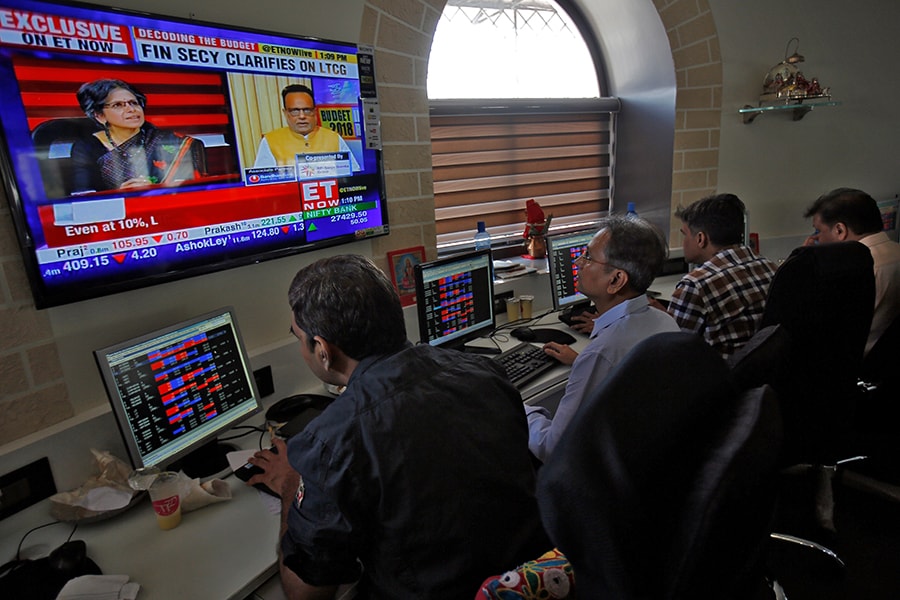No bad news spells good news for markets
Sensex closes 200 points up on budget day. Uniform stamp duty move a positive; global clues and political uncertainty will be key triggers


 Photo Credits: Shailesh Andrade/ Reuters Investors were not expecting much from the 2019 interim budget in terms of financial markets’ reform. Hence, with an announcement relating to uniformity in stamp duty for financial instruments coming in – and no unpleasant reform being announced by Finance Minister Piyush Goyal – the stock markets reacted favourably, closing up by 0.59 percent or 212.74 points at 36,469.46.
Photo Credits: Shailesh Andrade/ Reuters Investors were not expecting much from the 2019 interim budget in terms of financial markets’ reform. Hence, with an announcement relating to uniformity in stamp duty for financial instruments coming in – and no unpleasant reform being announced by Finance Minister Piyush Goyal – the stock markets reacted favourably, closing up by 0.59 percent or 212.74 points at 36,469.46.
Goyal spoke about the positive impact the Insolvency and Bankruptcy Code has had in resolving the non-performing assets (NPAs) problems faced by banks. “An amount of close to Rs 3 lakh crore has already been recovered in favour of banks and creditors. To restore the health of public sector banks, recapitalisation has been done with an investment of Rs 2.6 lakh crore,” he said.
Automobile, consumption and banking stocks were up, led by Hero MotoCorp (up by 7.48 percent) and Maruti Suzuki (4.96 percent). Most of the banking stocks – already buoyed by improved Q3FY19 earnings in terms of improved profitability and lower bad loans – also rose. Kotak Mahindra Bank (up by 1.18 percent), HDFC Bank (0.50 percent) and IndusInd Bank (0.54 percent) were the main gainers.
“What appears to be underestimated is the uniform stamp duty for financial instruments. It was long awaited and will now be a uniform structure such as the Goods and Services Tax (GST),” says Navneet Munot, chief investment officer at SBI Mutual Fund. All these years, there have been different stamp duties being levied in different states.
“Stamp duties would be levied on one instrument relating to one transaction and get collected at one place through the stock exchanges. The duty so collected will be shared with the state governments seamlessly on the basis of domicile of buying client,” the minister said.
Some other financial markets-related measures such as the Long-Term Capital Gains (LTCG) tax, dividend distribution tax of the securities transaction tax, announced in previous Budgets, were left untouched. “It is tough for the government to have done much on these measures at this stage,” says Munot.
Munot says India’s stock markets will continue to see a roller-coaster ride in the first half of 2019, driven by weakening global economic clues and the uncertainty ahead of India’s general elections. “The growth momentum will pick up in the second half of the year,” he adds.
Kamlesh Rao, managing director of Kotak Securities, says, “No bad news was good news for investors today.” India’s stock markets could continue to show stable growth over the next six months, led by a mix of lower inflation and a sustained consumption demand story. The only risk factor could be a bad monsoon,” adds Rao.
Both experts were confident that the pace of growth for India could be close to 7 percent. The government on Thursday revised the economic growth rate to 7.2 percent for FY18, from the earlier figure of 6.7 percent.
First Published: Feb 01, 2019, 18:02
Subscribe Now